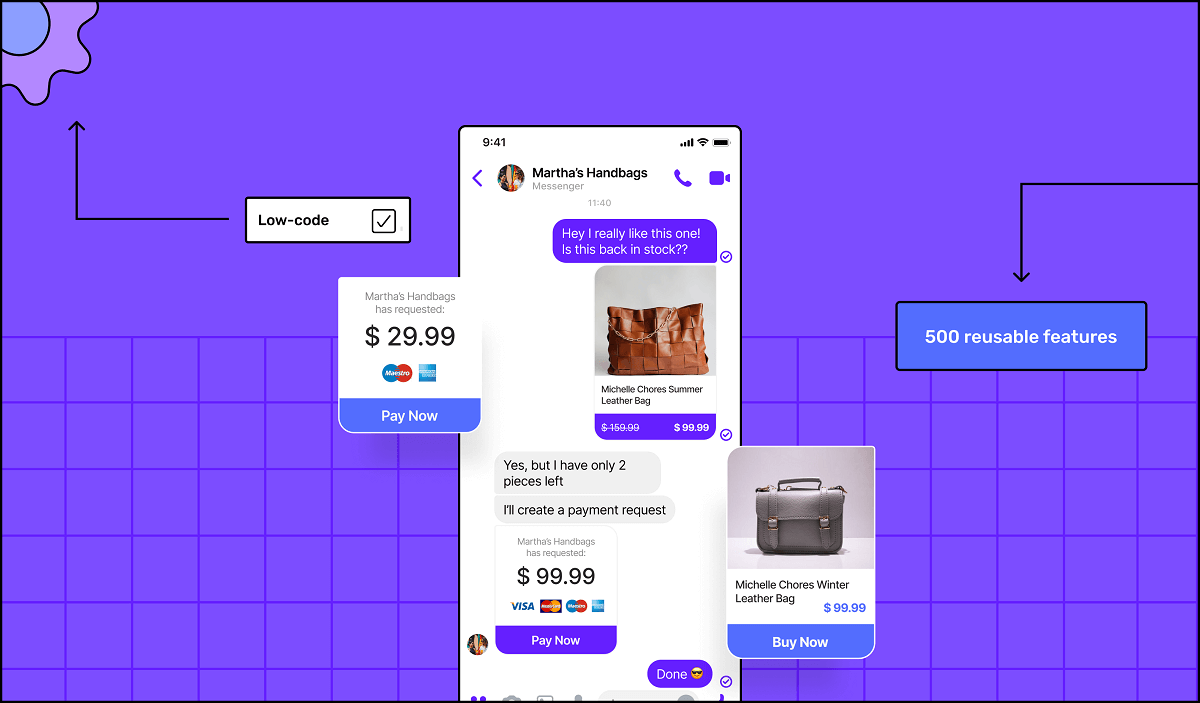Marketplaces offer such an abundance of products they’re handy for consumers in search of some shopping inspiration and careless browsing. But what about retailers? Who ends up lost in the crowd and stuck with unnecessary and expensive fees?
Recently we’ve seen a shift from retailers using marketplaces to embracing their own eCommerce apps and websites. Brands no longer want to march to Amazon’s drum. Businesses have begun to reclaim their products from the oversaturated market and we’ve found out exactly why:
1. High Commissions
It’s modern-day extortion, except it’s not a Godfather spin-off, it’s from your marketplace provider. To name a few, Amazon, eBay, Alibaba and Etsy can charge whatever fees they’d like from transaction fees to commissions. These unfairly high commissions make it difficult for businesses to maintain profitability.
Service-based marketplaces like Uber, Lyft and Deliveroo could charge up to 20–30% commission per transaction and product-based marketplaces hover around 10% per purchase. Amazon's fees range from 6% to 45% based on the category of the product.
These unfair charges on businesses ultimately result in very thin profit margins. If you want to feel more outraged why don’t you find out exactly how much you could be saving without marketplace fees? Grab your pitchforks and use : our free online calculator
Want to build your online store?
Book a demoSpeak with one of our product experts today.
By proceeding you agree to Builder.ai’s privacy policy and terms and conditions

2. Competitive prices
The tricky aspect of marketplace life is the immense pressure businesses face to reduce their prices to match the overall benchmarks set by other brands. A race to the bottom where no one is a profitable winner.
Marketplaces are oversaturated with products, eBay has billions of products, Deliveroo has thousands of options and the majority of the time your brand is also competing with the marketplaces' own products and services.
Whilst marketplaces distribute their own products, their product rankings always seem to tip in their favour. Their prices are normally lower than yours and your competitors because of the lower risk associated since they own the marketplace…
With all that consumer data available to them, the marketplace can find the optimal price and create new products to replace your offerings.
3. Growth cap
Set the scene- you’re happy and thriving, and your products are ranking highly and reaching that all essential consumer base. But not for long. Enter the marketplace caps.
Marketplaces benefit from competition, they need to maintain a balance, so they will often promote a competitor's offerings right below yours. If you gain a monopoly on a category or service, this would only negatively impact the marketplace. For example, they run the risk of losing their other offerings, and their large product diversity if you decide to create your own eCommerce site or app- you’d also take a large part of their customer base with you!
So that means you get a lovely cap on your growth.
4. Branding
‘I love that bag, where’s it from!?’ ‘Oh, I got this from Amazon’.
‘I just got an Uber here’. ‘Want Deliveroo for dinner?’
We can’t deny we’ve all said the above. But it’s a dangerous mistake for businesses to allow their products to be associated with the marketplace provider and not their own brand. Your branding doesn’t come to your customers' minds when discussing your products- but instead, it’s the marketplace's image.
Businesses want to be recognised and marketplaces don’t safeguard your brand identity - on most platforms, you can’t even design your product page or images. Whereas apps and websites provide that essential design freedom to curate your image for your customers.
How can your loyal customers find your brand in a marketplace when you’re lost in their image? With your app you’re able to reclaim those loyal customers and ensure their reviews are received directly by your store.
5. Choice paralysis
We’ve all stood looking at a store shelf for a few too many minutes. Imagine that times a thousand? The more options a buyer has, the harder it is to decide. Getting overwhelmed and giving up is all too common now. How can your unique offering stand out in a uniform list with five hundred other products in the same brain-numbing white background?
Exactly…
And what are marketplaces doing to combat this? With the independence of their own website or app retailers can offer their range of products and services without crushing their customers with choice.
6. Delays in payment
Imagine selling your products or services and not being paid for another 2 weeks? Payment cycles of Amazon and other marketplaces can sometimes take between 7-14 days.
Once your customers purchase your goods, the marketplace receives the funds and deducts their fees first before transferring the remainder to you. Stopping the seamless flow of funds can result in serious problems with businesses' financial processes.
But with your own online store that’s unimaginable - you keep 100% of your profits and you get it straight away.
Wrapping up
We’ve outlined exactly why retailers have begun to move away from marketplaces with their hefty fees and overwhelming choices.
Maybe it’s time you began to think about your own brand and your own identity. An ecommerce store where you make the rules and don’t feel the pressure to compete side-by-side with another product. Check out how you could carve out your own area of the internet, just for you.
Ridhima is the Global Head of Marketing at Builder.ai. With 16+ years of experience in delivering data-driven, strategic marketing campaigns, Ridhima’s innovative approach has accelerated growth within the marketing and content teams.












 Facebook
Facebook X
X LinkedIn
LinkedIn YouTube
YouTube Instagram
Instagram RSS
RSS


